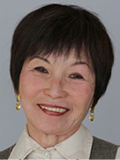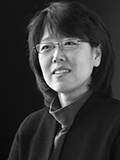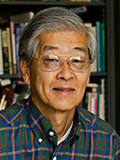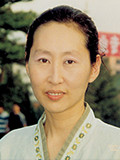These essays represent a timely collaboration, across a range of disciplines, with scholars in the fields of Korean studies and Asian American studies, many of whom participated in the Alliance of Scholars Concerned about Korea (ASCK) Teaching Initiative to End the Korean War.
On the Importance of Survivor Testimony to Korean War History
Kim Dong-Choon (Kim, Dong-Choon) (Sociology, SungKongHoe University)
While the Korean War has been regarded as having been one of the most destructive wars of the 20th century in terms of civilian casualties, there are no reliable data or figures on the number of casualties, especially the mass killings committed by U.S. and South Korean authorities.
More on the AuthorDong-Choon Kim (Kim, Dong-Choon) is professor of sociology and director of the Democracy Institute at SungKongHoe University in Seoul, Korea as well as a former standing commissioner of South Korea’s Truth and Reconciliation Commission. Published in 2013, his most recent book is This Is A War over Memory (I kŏssŭn kiŏk kwa ŭi chŏnjaeng idea).
The Unforgotten War
Elaine Kim (Ethnic Studies, University of California, Berkeley)
Frequently characterized as “the forgotten war” in the United States, the 1950-53 war in Korea took an estimated four million lives and resulted in uncountable injuries, separated ten million families behind a historically unprecedented U.S.-imposed partition, and literally flattened northern and central Korea with air strikes that destroyed not only buildings and houses but also dams, irrigation, roads, bridges, and farms, exceeding the total bombings in Europe during World War II.
More on the Author Elaine Kim is an award-winning writer, professor, and founder of Asian American Studies at UC Berkeley. She is also a prolific filmmaker, and her films include Sa-I-Gu (1993), Labor Women (2002), and Slaying the Dragon Reloaded: Representing Asian Women Beyond Hollywood (2010). Her many books include the oral-history collection, East to America: Korean American Life Stories (1997), co-edited with Eui-Young Yu, and Dangerous Women: Gender and Korean Nationalism (1997). She is the co-founder of Asian Women United, the Korean Community Center of the East Bay, and Asian Immigrant Women Advocates. In 2011, she received the Association for Asian American Studies Lifetime Achievement Award.
Elaine Kim is an award-winning writer, professor, and founder of Asian American Studies at UC Berkeley. She is also a prolific filmmaker, and her films include Sa-I-Gu (1993), Labor Women (2002), and Slaying the Dragon Reloaded: Representing Asian Women Beyond Hollywood (2010). Her many books include the oral-history collection, East to America: Korean American Life Stories (1997), co-edited with Eui-Young Yu, and Dangerous Women: Gender and Korean Nationalism (1997). She is the co-founder of Asian Women United, the Korean Community Center of the East Bay, and Asian Immigrant Women Advocates. In 2011, she received the Association for Asian American Studies Lifetime Achievement Award.
The Korean War, Anticommunism, and the Korean American Community
Namhee Lee (Asian Languages & Culture, University of California, Los Angeles)
The Korean War (1950–1953) remains possibly the most traumatic collective experience for most Koreans, both on the peninsula and in the diaspora since 1945. The war claimed close to three million civilian lives and destroyed half of Korea’s industries and a third of all its homes. Moreover, the atrocities committed by both sides left Koreans with deep scars, as many who were accused of supporting the other side were imprisoned or summarily executed during the war.
More on the Author
Namhee Lee is an associate professor of modern Korean history at UCLA. Her publications include The Making of Minjung: Democracy and the Politics of Representation in South Korea (Cornell University Press, 2007) as well as articles on Korean historiography, the Park Chung Hee period, and social memory. She is currently working on a book titled “Social Memory and Public History in South Korea,” which explores the production of public history outside established academic institutions in the last three decades, examining the debates, tensions, and exchanges generated from historical novels, films, museum exhibitions, festivals, historical restorations (or destructions), and civic historical movements.
Silenced No More: Korean Americans Remember the ‘Forgotten War
Ramsay Liem (Psychology, Boston College)
Silence is a common signature of profoundly traumatic events not the least of which are wars. For survivors of armed conflict, it attests to unspeakable violence and unresolved wounds. For state actors, it shields the geopolitics of war from public scrutiny. The Korean War is a testament to both conditions—a horrific civil conflict bearing untold civilian and military casualties and also an interventionist war in which U.S. stakes in the emerging Cold War dictated the allied response. It is no wonder the Korean War is best known as the Forgotten War.
More on the Author Ramsay Liem is professor emeritus of psychology and a visiting scholar at the Center for Human Rights and International Justice at Boston College. He is also president of the Channing and Popai Liem Education Foundation. His interests include the intergenerational transmission of historical trauma and the social and historical contexts of Asian American identity formation. He is responsible for the oral-history project, “Korean American Memories of the Korean War,” and served as project director for the multi-media exhibit, “Still Present Pasts: Korean Americans and the Forgotten War.” The documentary, Memory of Forgotten War, which he and Deann Borshay Liem directed and produced, is the most recent product of his work on Korean American legacies of the Korean War.
Ramsay Liem is professor emeritus of psychology and a visiting scholar at the Center for Human Rights and International Justice at Boston College. He is also president of the Channing and Popai Liem Education Foundation. His interests include the intergenerational transmission of historical trauma and the social and historical contexts of Asian American identity formation. He is responsible for the oral-history project, “Korean American Memories of the Korean War,” and served as project director for the multi-media exhibit, “Still Present Pasts: Korean Americans and the Forgotten War.” The documentary, Memory of Forgotten War, which he and Deann Borshay Liem directed and produced, is the most recent product of his work on Korean American legacies of the Korean War.
Beyond Numbers: The Brutality of the Korean War
Ji-Yeon Yuh (Asian American Studies, Northwestern University)
The cost of the Korean War is commonly tallied in numbers: soldiers killed and wounded, civilians killed and wounded, villages destroyed, refugees evacuated, orphans created, families divided, napalm dropped, bombs exploded. Those numbers are worth repeating, for the sheer physical devastation of three years of war on a peninsula about the size of Idaho (roughly 85,000 square miles) is staggering.
More on the Author Ji-Yeon Yuh is an associate professor of history at Northwestern University. She specializes in Asian American history and Asian diasporas and is the author of Beyond the Shadow of Camptown: Korean Military Brides in America (New York University Press, 2002). A history of Korean women who immigrated to the United States as the wives of U.S. soldiers, this work examines the dynamics of race, culture, gender, and nationalism from the perspective of Korean military brides. Her current book project examines policies toward minority ethnic groups and their impact on the development of community and identity, as well as the ways in which experiences of Koreans in the diaspora are connected and divided by the history of the Korean peninsula in the twentieth century. She is a native of Seoul and Chicago, a former journalist, and a fan of pungmul.
Ji-Yeon Yuh is an associate professor of history at Northwestern University. She specializes in Asian American history and Asian diasporas and is the author of Beyond the Shadow of Camptown: Korean Military Brides in America (New York University Press, 2002). A history of Korean women who immigrated to the United States as the wives of U.S. soldiers, this work examines the dynamics of race, culture, gender, and nationalism from the perspective of Korean military brides. Her current book project examines policies toward minority ethnic groups and their impact on the development of community and identity, as well as the ways in which experiences of Koreans in the diaspora are connected and divided by the history of the Korean peninsula in the twentieth century. She is a native of Seoul and Chicago, a former journalist, and a fan of pungmul.
* Additional essays have been solicited and will be periodically uploaded.
